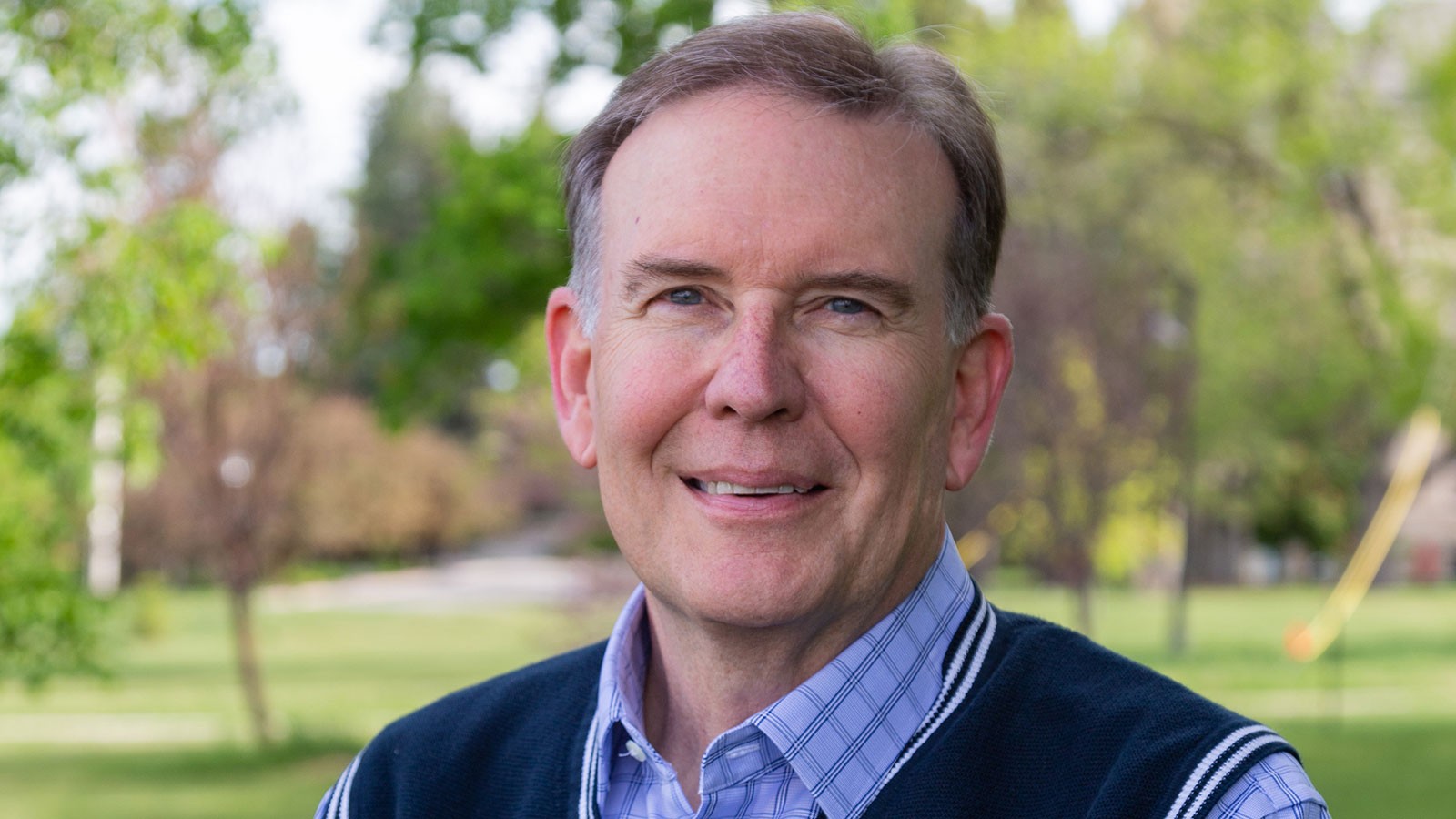David Anderson Named Associate Vice Provost for Community Engagement
By Marcus Jensen |
David Anderson
LOGAN, Utah — Utah State University Provost Laurens H. Smith has announced that David Anderson has been named associate vice provost for Community Engagement. In this assignment, Anderson will serve as the lead writer in the university’s preparation and submission of the Carnegie Community Engagement reclassification application. Anderson was a part of the task force when the university received its initial classification in 2020.
“I am thrilled to name David Anderson as the associate vice provost for Community Engagement,” Smith wrote in a statement. “David has been a strong advocate and ambassador for community engagement in his time at Utah State University and was a key contributor in USU earning its Carnegie Community Engagement Classification in 2020. I am confident he will excel in this appointment.”
Anderson is a professional practice professor in the Department of Landscape Architecture and Environmental Planning (LAEP). He joined the USU faculty in 1995, serving as the associate director and later director of the USU Botanical Center in Kaysville. In 2012, Anderson joined the LAEP faculty and was named the 2021 College of Agriculture and Applied Sciences Teacher of the Year. Anderson was also named a co-recipient of the 2020 USU Presidential Award for Community Engagement.
The Carnegie Community Engagement Classification is the highest recognition for community engagement. As Utah’s land-grant institution, USU places community engagement at the center of its mission to serve the public through learning, discovery and engagement.
“The Carnegie Community Engagement classification signifies that Utah State is invested in supporting and strengthening Utah’s communities,” Anderson said. “I’m excited to begin assembling not only the quantitative data, but also the qualitative evidence that USU is on an upward trajectory related to its commitment of providing meaningful experiential learning opportunities for our students and valuable assistance to our stakeholders and constituents.”
The Classification for Community Engagement is the foundation’s only elective classification, meaning that it requires a voluntary application process by institutions. The classification is not simply an award; it requires extensive, evidence-based documentation of institutional practice to be used in an ongoing and forward-looking process of self-assessment and quality improvement for community engagement.
“I am thrilled to see David step into this role at USU,” said Jess Lucero, department head of the Department of Social Work. “He is an important leader in community engagement, both in his work with Extension and as a dedicated teacher who integrates high-quality community-engaged teaching in his classroom.”
Achieving the designation in 2020 affirmed the excellence in community engagement USU has long been known for, Lucero said.
“The classification itself is a valuable tool for faculty and student recruitment, sending an important signal that USU values community engagement and embodies its land-grant mission,” Lucero said. “Likewise, the designation signals to community partners that we’re invested in high quality partnerships that lead to co-created and sustainable solutions for complex problems.”
Kate Stephens, associate director of the USU Center for Community Engagement, also spoke highly of Anderson and how the classification process has helped the university improve partnerships as they worked together to earn the initial classification.
“The 2020 Carnegie Community Engagement Classification was a multi-year pursuit that uncovered processes and policies to be strengthened, clarified, and enacted to better align with the values and spirt of community engagement," Stephens said. "Most importantly, the process gave USU a common language and a shared institutional goal to not only obtain the classification, but also deepen and improve partnerships across all USU campuses in ways that encourage reciprocity, community voice, and mutual benefit.”
As a land-grant institution, community engagement is central to USU’s mission to serve the public through learning, discovery, and engagement. USU upholds its mission by responding specifically and concretely to community-identified needs throughout the state, both on its main Logan campus and on the 32 other statewide campuses across the state. All 33 of USU’s campuses are deeply rooted in their local communities and responsive to the needs of those communities, offering an unprecedented opportunity for community engagement.
The framework for the application questions for the 2026 renewal cycle were released on Jan. 24. Universities are permitted to submit their applications for reclassification beginning Nov. 4, with an application deadline of April 1, 2025. Campuses will be notified of their classification status in December 2025, with public announcements occurring in January 2026.
WRITER
Marcus Jensen
News Coordinator
University Marketing and Communications
marcus.jensen@usu.edu
CONTACT
Amanda DeRito
Associate VP of Strategic Communications
University Marketing and Communications
435-797-2759
Amanda.derito@usu.edu
TOPICS
Community 446storiesComments and questions regarding this article may be directed to the contact person listed on this page.







